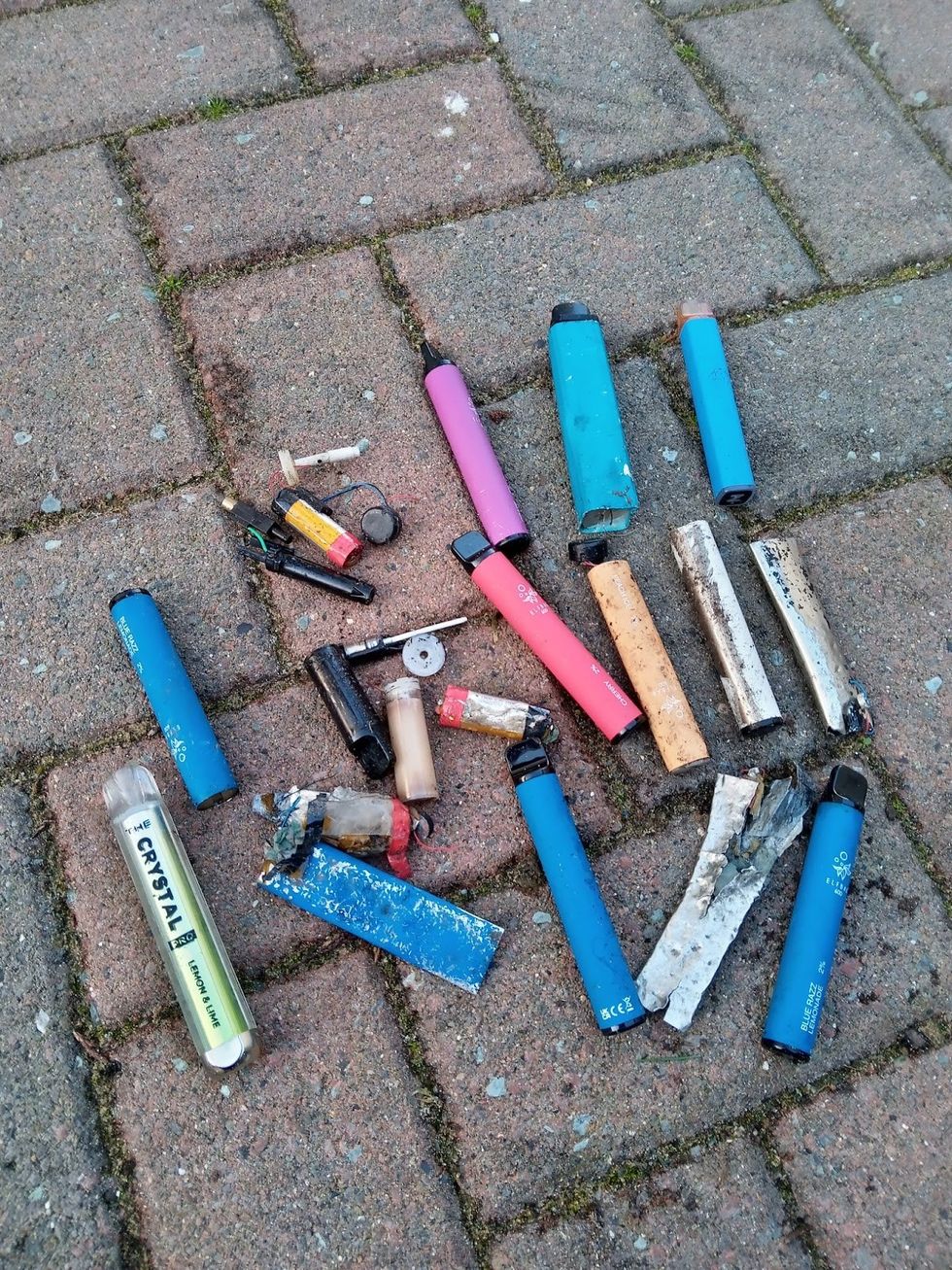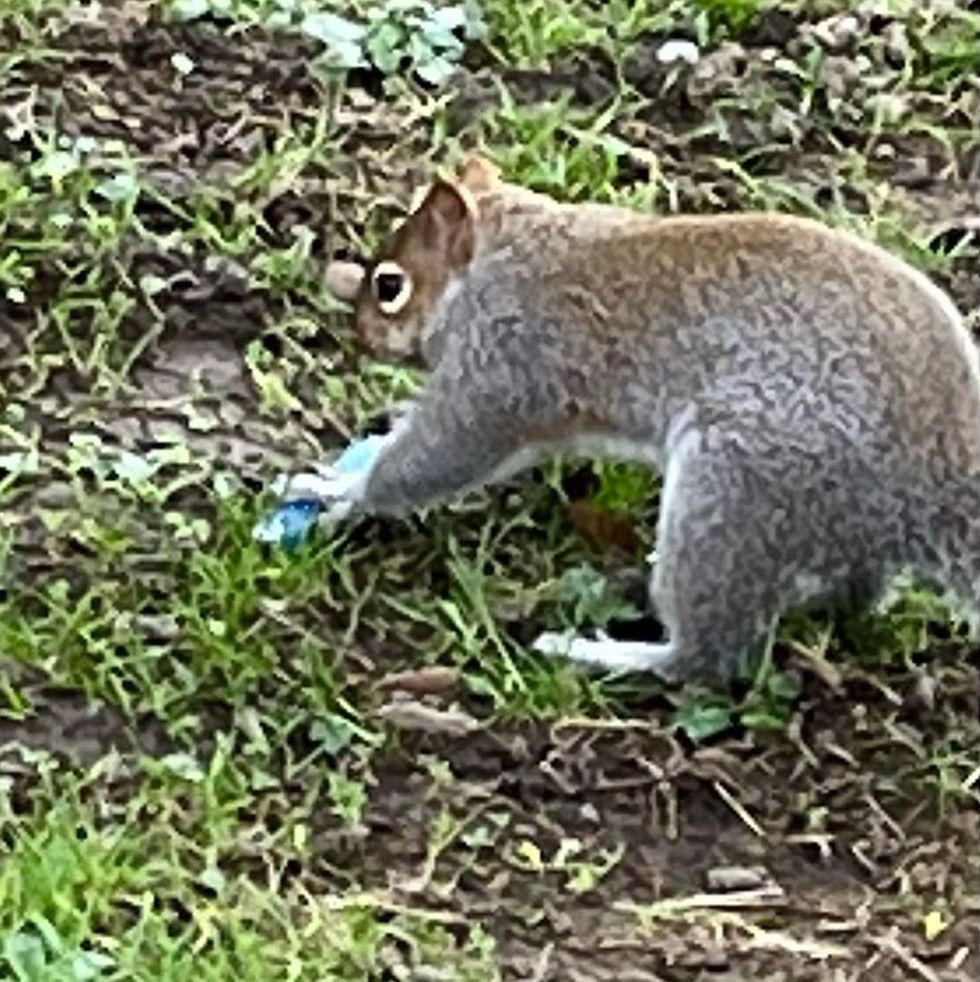Litter-pickers during this year’s Great British Spring Clean are being urged by the RSPCA to keep an eye out for carelessly discarded vapes, as the charity’s own staff express shock at the numbers they are collecting themselves and their potential risk to animals.
Keep Britain Tidy’s annual litter-pick is now underway amidst reports from the UK and overseas of vapes being mistaken by animals for food and being ingested and even dying from them.
In the UK, 167.5 million single-use vapes are now used every year and are a potentially lethal threat to animals, containing a variety of materials and poisonous substances including plastic, lithium and nicotine, all of which can be hazardous to animals when discarded as litter or not disposed of properly.
The RSPCA received more than 10,000 calls over the past three years about animals affected by all types of litter - an average of almost ten reports per day. With anecdotal evidence of a rise in carelessly discarded vapes, the charity is preparing itself for casualties from this new phenomenon.
RSPCA scientific officer Evie Button said: “Reports are coming in from shocked RSPCA staff of the worrying number of used vapes they’re finding during this year’s Great British Spring Clean litter-pick.
“When I litter-picked last Sunday, I found 10 vapes just from looking in a small area for a few hours, and I’m sure there are even more waiting to be found. Carelessly discarded used vapes seems to be a growing trend, and that’s a real concern for us - and for animals.
“Litter is one of the biggest hazards our wildlife faces today, and new hazards such as these discarded vapes just add to the risk to animals. Litter is a problem on all of our doorsteps - from city centres to the countryside and beaches - so all of us can do something to help by getting involved in the Great British Spring Clean and disposing of dangerous items such as vapes appropriately.
“Our staff deal with thousands of incidents every year where animals have been impacted by litter - and what they are seeing is probably just the tip of the iceberg. Sadly, for every animal we’re able to help there are probably many that go unseen, unreported and may even lose their lives.
“Spring is an ideal time to go on a litter-pick because it's before the breeding season when young animals such as fox cubs start getting into trouble, and litter will be more visible in hedges before the vegetation really starts growing. There’s still time for the public to get involved in the Great British Spring Clean to help remove litter that may endanger animals."
The call for help comes as the RSPCA launches its new Wildlife Friends initiative - as part of the Big Help Out, a mass volunteering initiative to mark King Charles III’s Coronation celebrations.
Wildlife Friends includes a choice of simple ideas to help wildlife on the doorstep either on your own, or as part of your family or group of friends, or even the wider community, including organising a litter pick, and signposting to RSPCA advice about wildlife online - such as the dangers posed by vapes.
Last year during the Great British Spring Clean ‘Big Bag Challenge’, nearly half a million bags of all types of litter (449,406) were collected by participants. And with increasing numbers of used vapes being found discarded on the ground as litter, the RSPCA expects a growing number of those potentially lethal items to feature in litter-picks.
The UK Government warns that incorrect disposal of vapes can potentially release plastic, electronic and hazardous chemical waste into the environment. It says that used vapes are classified as electrical waste, and should be disposed of appropriately at a household recycling centre or at the shop where the device was bought.
As well as everyday rubbish, the RSPCA also sees many animals arriving into its care with terrible injuries caused by angling litter such as discarded fishing line, hooks and plastic netting. Nearly 50 per cent (1,510) of all litter-related calls to the RSPCA last year were about animals that had specifically become caught in fishing litter.
Evie continued: “Animals who get their heads or necks stuck in litter can suffer severe injuries as they struggle to break free and can even suffocate, while others will slowly grow weaker and weaker as they try to hunt or find food or water.
“Others will get fishing line or netting cutting deep into their skin, affecting circulation and with wounds becoming seriously infected. These hazards can very quickly become a matter of life or death for these animals and action is urgently needed to tackle this problem head-on. It’s up to every one of us to do our bit in the war against litter.”
The RSPCA says a majority of anglers are careful when fishing - but a small number are letting the community down by not disposing of their waste properly and leaving animals in danger.
Evie added: “The majority of anglers do dispose of their litter properly and it is frustrating that those who don’t possibly don’t realise how dangerous it is to animals. Discarded line in particular is a terrible hazard for wildlife, particularly as it can be almost invisible.
“We strongly urge those who enjoy fishing to be extra cautious to make sure nothing is left behind. Most anglers are very responsible when disposing of their litter, but it only takes one piece of snagged line to be left in a tree or dropped near the water to endanger the life of an animal. We ask anglers to follow the Angling Trust Anglers Against Litter campaign and make use of recycling schemes to dispose of their waste tackle.
“If members of the public see discarded litter we would encourage them to pick it up safely and put it in the bin - or recycle where appropriate - remembering to wash their hands after. Their action could save an animal’s life.”






















